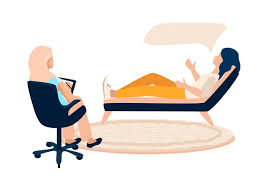Gallery






A psychologist is a trained mental health professional who helps people learn healthy ways to handle mental health challenges. They can help people living with specific conditions, like depression or anxiety, or those who are going through a tough time in life, like grieving the loss of a loved one. They undergo years of education and training to be able to provide a range of mental health services.
Aspiring professionals can choose to study any subject, but it may be worth considering a major that lends itself to a career in psychology, such as social work, psychology, or sociology.
Depending on where you intend to practice and the specific concentration you are interested in (e.g., child psychology, social work, marriage and family therapy), you may be able to pursue a psychology license after earning a master’s degree, either a Master of Arts or a Master of Science. If you must pursue a doctoral degree, you will choose between a PsyD, a practical degree for would-be counselors; a PhD, which is more research-oriented; an E.d.D, or Doctor of Education; and an EdS, or education specialist. Check your state requirements and consider your career goals to determine which degree is right for you.
After completing a psychology master’s or doctoral program, you must complete an internship or postdoctoral program. This required psychology internship gives you an opportunity to work alongside licensed psychologists to gain hands-on training in your field of interest. Most states require 1,500 to 2,000 hoursExternal link:open_in_new of training and at least one to two years of supervised professional experienceExternal link:open_in_new, according to the U.S. Bureau of Labor Statistics (BLS).
The licensing requirements for psychologists vary per state. Contact your state board to learn about your state’s requirements. Various state board information can be found at the Association of State and Provincial Psychology Boards (ASPPB)External link:open_in_new website. Once you’ve met the necessary education and professional requirements, you’ll need to pass the Examination for Professional Practice in PsychologyExternal link:open_in_new, which is administered by the ASPPB.





